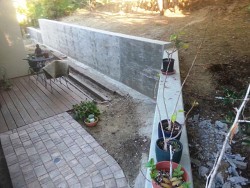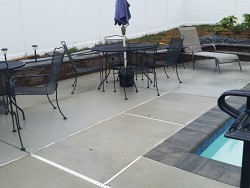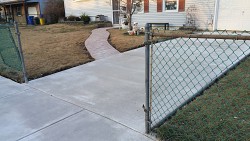How Much Does it Cost to Install a Driveway?
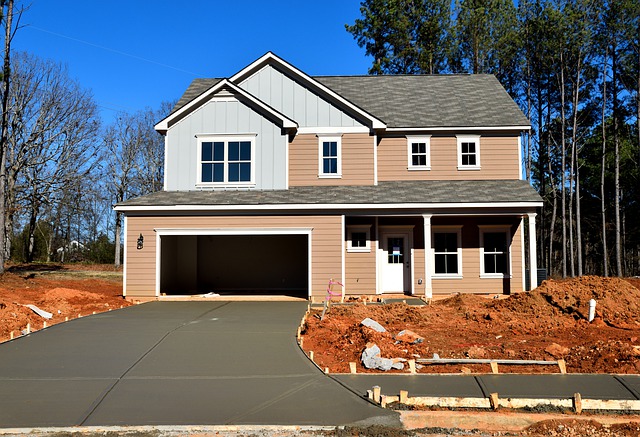
The average cost to install a driveway usually ranges from $2,357 to $6,501.
What Factors Determine Total Cost of a Driveway Installation Project?
The cost to install your driveway will vary according to these factors:
- Square footage. That is, width x length for a straight driveway. For a curved driveway, measure both long sides and divide by 2. Then multiply by its width.
- Land slope and drainage.
- Shape to be paved. A driveway that curves sharply or forms a circle may be more complicated to pave than a straight stretch.
- Type of material. Popular driveway materials include concrete, asphalt, gravel, pavers, and bricks.
- Thickness, in the case of asphalt or concrete. Both should be installed on a crushed stone or aggregate base (a 6 to 8-inch base for 3 inches of asphalt and for concrete, a base:material ration of 1 to 1). Four inches is the standard thickness for a poured concrete driveway, but the Portland Cement Association recommends 5 inches if heavier vehicles need to be accommodated.
- Thickness, in the case of gravel. Gravel for a driveway should be 4-6 inches deep, minimum. Some homeowners have several layers installed.
- Size and desired configuration, in the case of pavers or bricks. Generally, larger pavers and a simpler configuration mean lower installation costs.
- Whether you have an existing driveway which must be removed. An old driveway that is badly damaged, settling, or sinking must be removed before the new one is installed. This usually involves demolition and haulage.
- Site preparation required. When you install a driveway on a new site, the ground will have to be cleared, excavated, and graded. If your home has been newly built, wait 12 months before you install a driveway. The ground will need that amount of time to settle.
- Anticipated wear and tear. A driveway that will be used for only one compact car is subject to less wear and tear than a drive that must accommodate multiple large vehicles such as trucks or RVs.
Plan Your Driveway
If you want to install a brand new driveway or change the current configuration, do some careful advance planning. A knowledgeable concrete contractor will be very helpful at this stage.
You'll need to consider the following questions:
- Where do you want to locate the driveway?
- What size should it be? Will you park on the drive, or simply use it as a means to get to your garage? Length for parking purposes: Plan on a minimum length of 20' per vehicle. Width: Single-car width is 9' to 12', and double is 20' to 24'.
- Does your local building code, HOA, or municipal government dictate Acceptable driveway width and materials?
- Will the driveway be straight, curved, or angled?
- Do you want any custom effects such as special colors or textures?
Compare Driveway Materials
The most common driveway materials are concrete, asphalt, pavers, brick, and gravel. Each type is listed individually below, with detailed information on price, types, and pros and cons.
- CONCRETE
Cost to install concrete driveway: $6 per sq ft for standard concrete, up to $25+ for custom decorative concrete, such as an exposed aggregate or stamped concrete driveway.
How long installation takes: 1-3 days is normal. After installation is complete, wait another 2 days before walking on the surface, and up to a week before you drive or park vehicles on your new concrete driveway.
Lifespan: 40 years
Pros: Requires no sealing. Wide variety of trendy concrete colors and designs possible.
Cons: Concrete repair can be complicated. Tends to crack, especially in sub-freezing weather. Expansion joints should be cut into the concrete following installation.
- ASPHALT
Cost to install asphalt driveway: $2 to $5 per sq ft
Lifespan: 20 years
Pros: Simple to repair
Cons: Hardens quickly in cold, making installation difficult at temperatures below 60 degrees F. Softens at high temperatures. Not eco-friendly: non-permeable and creates ”heat island” effect. Needs regular seal coating (about every 3-5 years). Only available in black color; can’t be customized.
How long installation takes: Paving an asphalt driveway takes only about 45 minutes once the base has been prepared. Wait 2 to 3 days before driving or parking on the new surface.
- CONCRETE PAVERS
Cost to install paver driveway: $6 to $20 per sq ft
Lifespan: 30-40 years
Pros: Many attractive styles. Simple to repair -- just replace damaged pavers. A permeable paver driveway is an eco-friendly concrete option that allows groundwater to replenish.
Cons: Pavers may crack or break. A paver driveway can be damaged during snow removal unless special care is taken.
How long installation takes: Installation is a lengthy process because the pavers must be placed by hand (and sometimes custom cut to fit). Request an estimated installation time as part of your contractors’ bids.
- BRICK
Cost to install brick paver driveway: $10 to $30 per sq ft
Lifespan: 30-40 years
Pros: Varied styles and multiple earth tones. Easy repair; individual bricks can be replaced.
Cons: Bricks may crack or break. Requires sealing.
How long installation takes: Installation is a lengthy process because bricks must be placed by hand (and sometimes custom cut to fit). Request an estimated installation time as part of your contractors’ bids.
- GRAVEL
Cost to install gravel driveway: $1 to $3 per sq ft
Lifespan: 100 years
Pros: Gravel is the cheapest driveway material. May be replaced easily. Assorted colors and types available.
Cons: Dusty. Moves in rain or snow. Needs regular maintenance (raking, weeding, edging, etc.). Requires a good drainage system such as French drains. Can be dangerous to clear with a snow blower, because the gravel may spray.
How long installation takes: Including grading, installing a gravel driveway takes 1-3 days. It’s fine to drive and/or park on the new drive immediately after installation.
Cost Breakdown
Cost to install a driveway will normally include:
- Materials and Supplies -- Cost includes paving and base materials plus incidental supplies.
- Labor -- Besides installation of your driveway, your contractor will prepare the site and seal the drive afterwards as required. Cutting trees and clearing debris from a new site will add to the labor cost, and so will demolition and removal of an existing driveway.
- Estimate -- The initial estimate, which may include an onsite inspection, is often free.
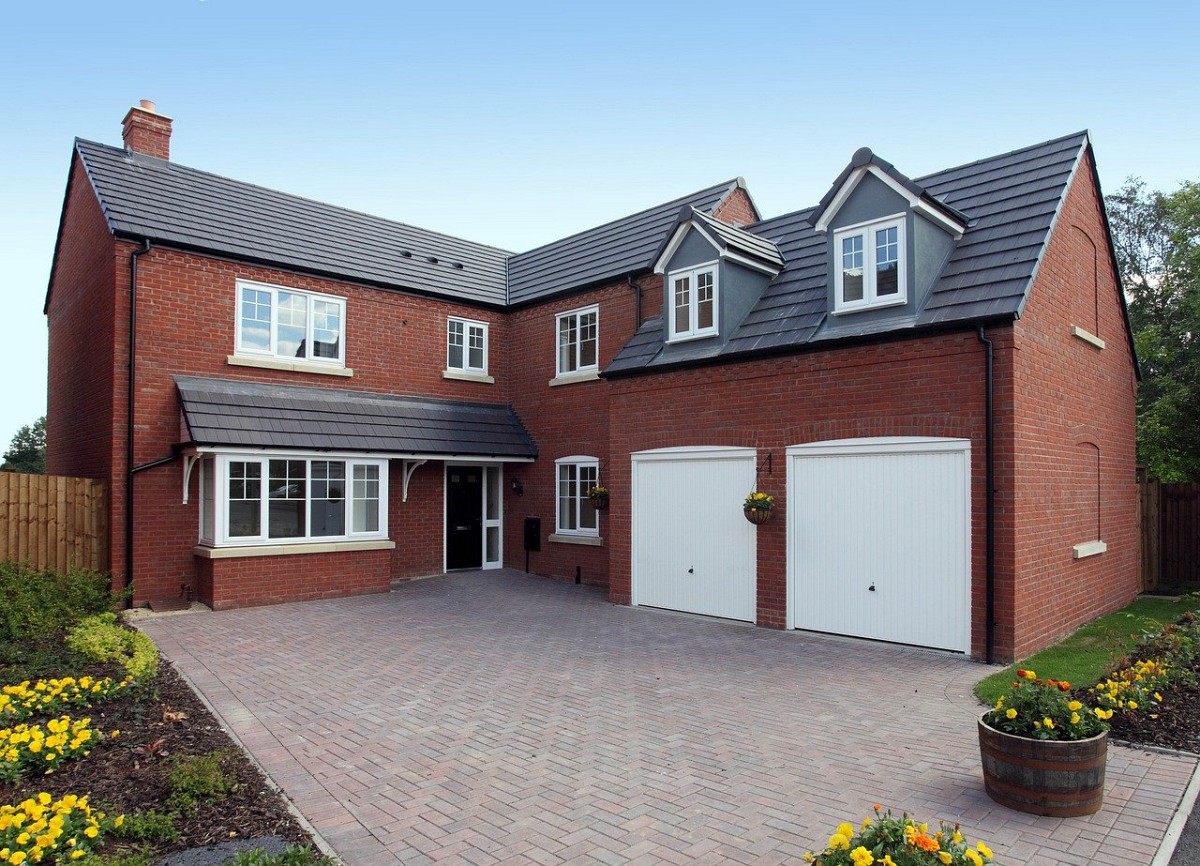
Driveway Installation Return on Investment
Add to your home value in one of two ways: 1) by installing a driveway where previously there was none or 2) by upgrading your driveway material – by paving over a gravel drive with concrete, to give one example.
When you’re preparing to sell your home, your driveway should fit in with the neighborhood norm. For instance, if everyone else in your area has pavers, it’s a good idea to upgrade your asphalt drive.
Get the Most for Your Money
- Compare multiple bids. Get cost estimates from several reliable driveway installers in your area.
- Save by resurfacing. Driveway resurfacing for asphalt or concrete costs about $2 per sq ft (not including any decorative concrete finishes). This treatment might be right for you if your driveway is less than 10-15 years old.
- Consider your climate. Ask your contractor to recommend the best, longest-lasting material for the climate where you live.
- Heat your driveway. Speaking of climate, if you live in the northern US, you might want to install a heated driveway system. Similar to radiant underfloor heating, this innovation melts the snow off the surface to spare you the task of shoveling or applying driveway deicer. Cost to install a heated driveway is about $12-21 per sq ft.
- Prevent weeds between pavers or bricks. Keep your beautiful paver or brick driveway weed-free by filling the joins with polymeric sand.
- Cut down on labor costs. Avoid using pavers or bricks on oddly shaped driveways where they would have to be cut to fit.
- Get all necessary permits. Obtain a building permit, plus a concrete pouring permit if that's the material you'll be using, before the job starts. If excavation is necessary, you ‘ll also need to get an excavation permit and contact a one-call number to check on the location of underground utility systems.
Cost to Hire a Concrete contractor
Articles and Tips

The What, Why And How Of Hardscaping
Hardscaping is a term for everything in the garden that is not living and growing. The most common hardscaping... Read More
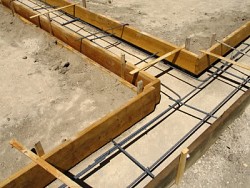
Concrete Form Types
Concrete forms are like a bowl that retains concrete "soup" in the project area -- only the soup weighs... Read More
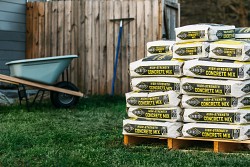
Concrete Projects To DIY (And When To Hire A Pro)
To savvy homeowners, DIY concrete projects can seem very appealing. And yes, the idea of saving money... Read More
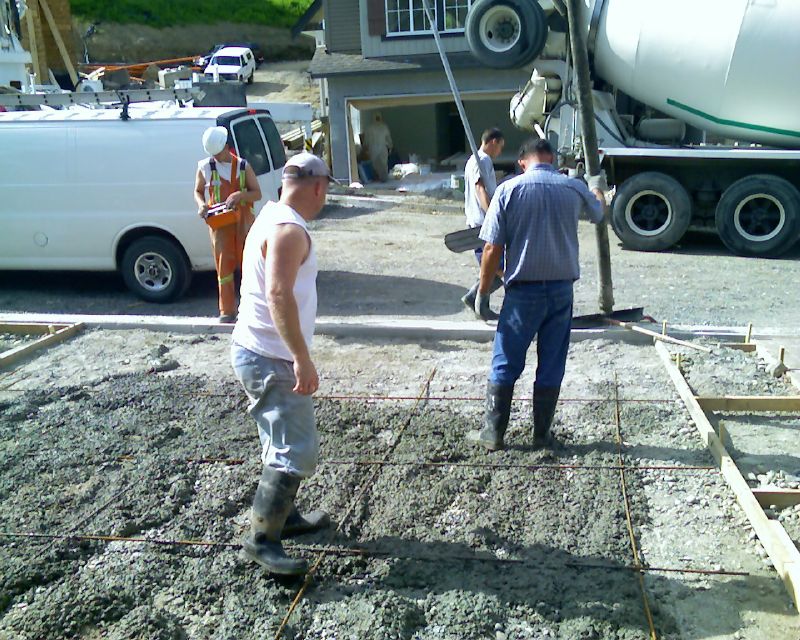
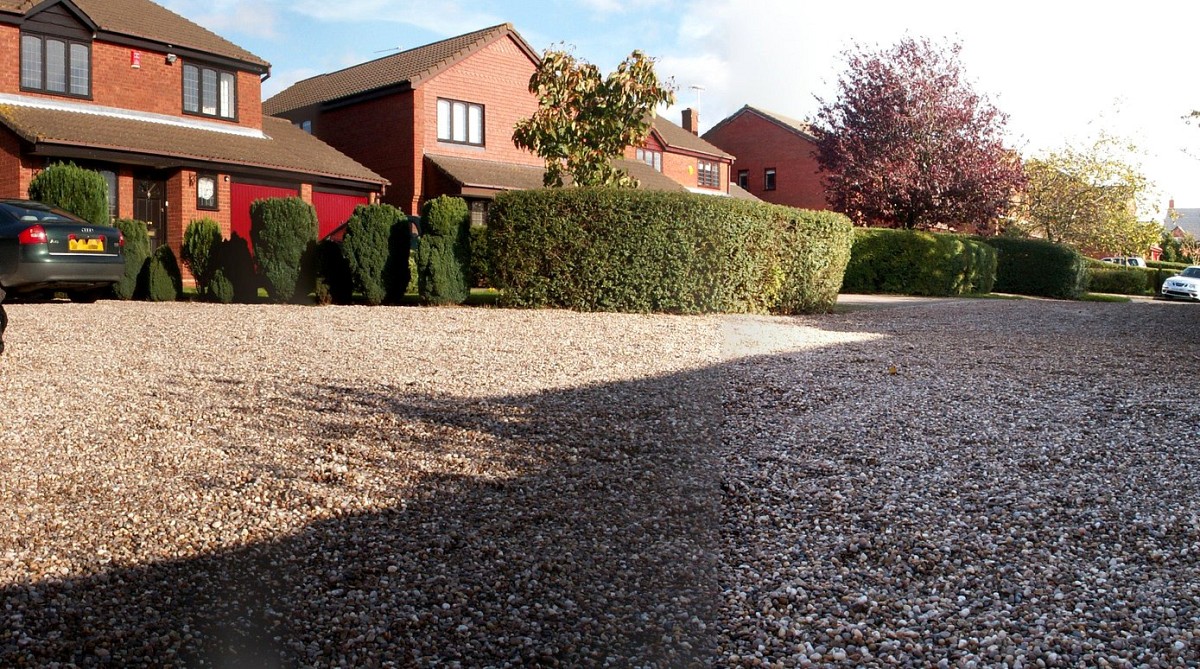
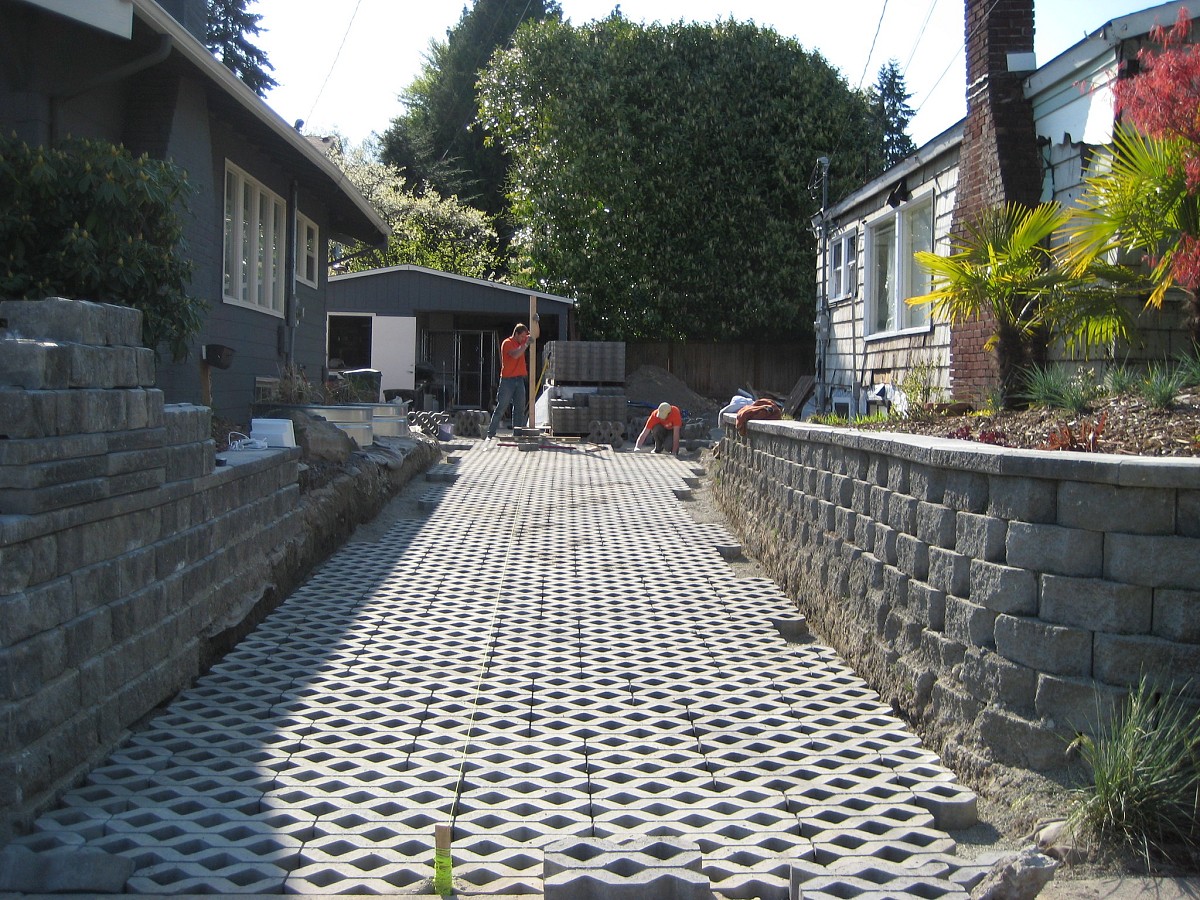
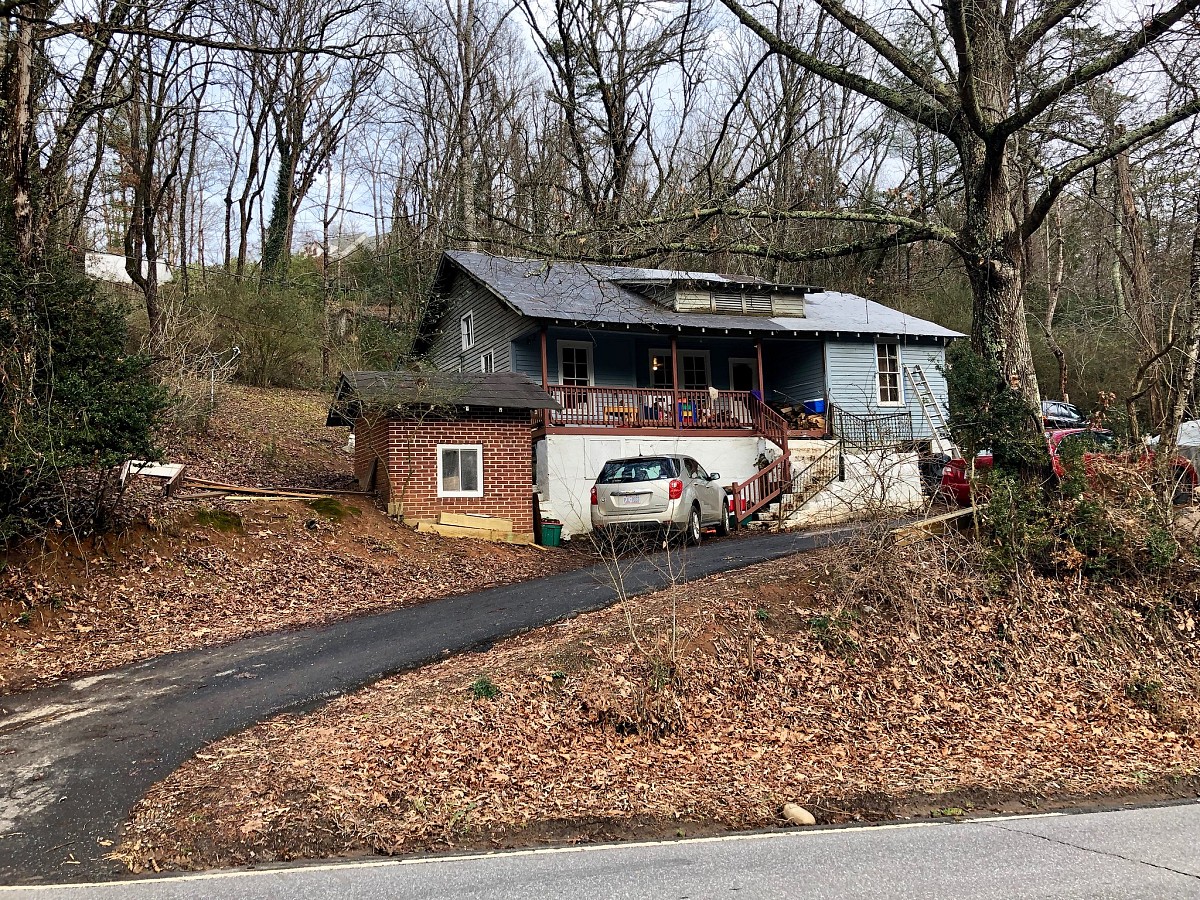
![Exposed aggregate driveway Deccon Concrete Restoration [CC BY-SA 4.0 (https://creativecommons.org/licenses/by-sa/4.0)] Exposed aggregate driveway Deccon Concrete Restoration [CC BY-SA 4.0 (https://creativecommons.org/licenses/by-sa/4.0)]](https://cdn.networx.com/media/500x375/art_5ddc774226b5b.jpeg)
